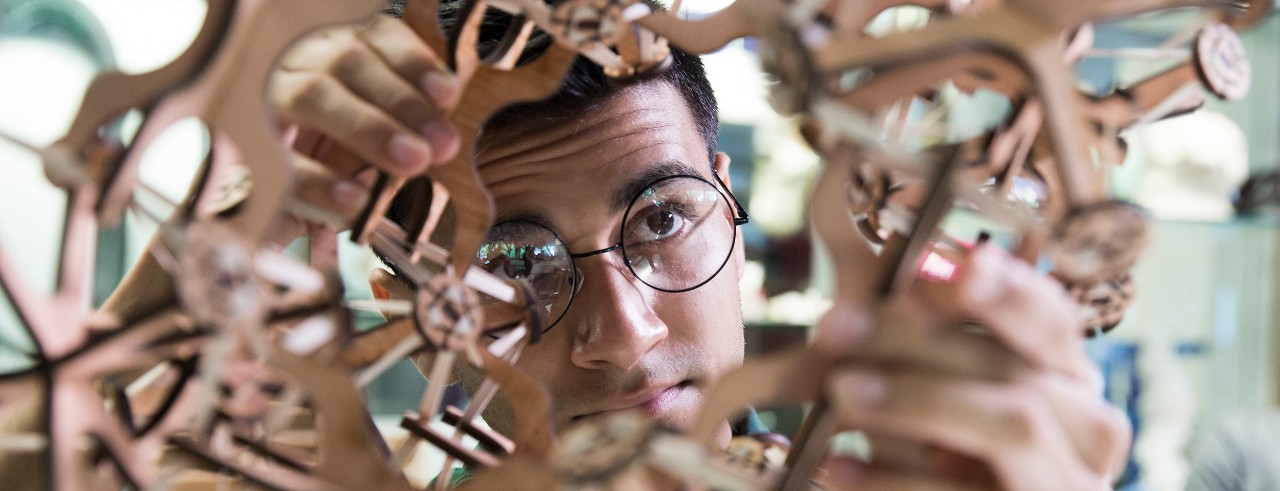
Workshop offers UC faculty and researchers guidance in protecting ideas and research
Expert will help chart path from conception to commercialization
Generating groundbreaking ideas from the prolific minds of researchers and academic scholars extends beyond the confines of traditional laboratory or classroom settings.
A new paradigm is emerging—one where enterprising scholars find avenues to transform their intellectual capital into tangible assets by exploring commercialization opportunities. At UC, the Technology Transfer office helps scholars and researchers navigate the intellectual landscape with precision and protection.
Geoffrey Pinski, assistant vice president of Technology Transfer, will host a webinar unearthing insights for faculty that resonate throughout and beyond the academic ecosystem at 1 p.m. Thursday, March 7.
Faculty can register for the workshop Research Faculty Development: Commercialization And Your Research.
Pinski reveals the pivotal role of the Technology Transfer office in safeguarding and valorizing scholars' innovations.
"Collaborating with the Technology Transfer office protects your ideas and research while providing a solid foundation for your commercialization journey. It’s not confined to technology or patents only. Copyright can be intellectual property and is just as valuable," Pinski said.
Who can attend?
The workshop is open to faculty in all disciplines.
Pinski dispels that innovation is confined solely to technological breakthroughs and patentable inventions.
“Not all commercializable ideas come from a laboratory. Attendees will gain insights into fortifying their ideas, research and inventions. It is a valuable training opportunity to engage and inform faculty on the numerous pathways through which (IP) can be conceived and safeguarded,” affirms Pinski.
It could be you
Creativity knows no limits, transcending the boundaries of disciplines and methodologies. It can be everything from software code to artistic creations, from assessments to set props, with each holding the potential to be recognized as valuable intellectual property worthy of protection.
Last year, the TT office was integral in helping faculty take their ideas from concept to realization. This includes staff who focus on promoting and selling faculty IP to potential partner investors.
Last year's conference featured:
- 25 Faculty licenses and options, including 7 startups.
- 51 Licensed technologies.
The virtual workshop is a collaborative environment for faculty and researchers to explore IP's transformative and multifaceted space, highlighting the symbiotic relationship between academia and industry in driving innovation to market forward.
Featured image at top: UC will host a webinar on commercializing research at 1 p.m. March 7. Photo/Andrew Higley/UC Marketing + Brand
Impact Lives Here
The University of Cincinnati is leading public urban universities into a new era of innovation and impact. Our faculty, staff and students are saving lives, changing outcomes and bending the future in our city's direction. Next Lives Here.
Related Stories
UC professor curates Little Women exhibition to accompany Playhouse in the Park production
February 16, 2026
The exhibition traces how artists shaped the visual legacy of Alcott’s beloved novel.
Knitting possibilities with a new machine coming to UC
February 16, 2026
A new machine transforms digital design into 3D knitted structures and wearable innovations.
UC’s research surges with $346M in awards
February 12, 2026
The University of Cincinnati reached $346 million in sponsored research awards in fiscal year 2025, up 6.6% increase over the previous year. Additionally, funding for clinical trials at UC climbed, with $88 million in industry-sponsored awards and $33 million in federally sponsored awards.
